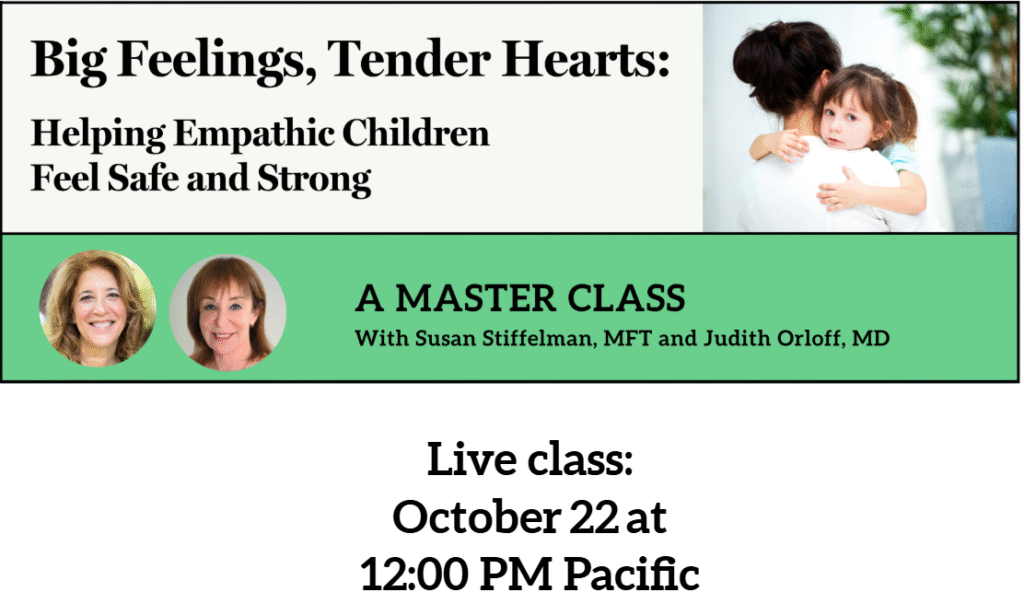The Unstoppable “Reset” Mindset
Reset is for anyone who knows the strain of balancing life on the tightrope of being everything to everyone.

Highly Sensitive Orchid children are gifts to the world and need to be nurtured.
As a psychiatrist and highly sensitive person myself, I’m often asked by parents for advice on raising their sensitive children. Like many Orchid children, I never felt like I fit in. My ordinarily loving mother would call me “too sensitive” and would say, “You need to get a thicker skin.” So, I grew up believing there was something wrong with me and felt shame about my sensitive self.
These kids are likened to orchids (versus the typically thicker-skinned dandelion children) because of their vulnerable nature which lets them tune into the emotions of others, and their specific needs that must be met for them to be comfortable in their environment.
For instance, Orchid children are often more reactive to stress. They often need more alone time or prefer to be with one or a few people rather than in groups. They thrive in supportive environments and struggle in negative or stressful ones. Orchard children prefer routines and stability. A predictable schedule can help them feel safe and secure. They may be overwhelmed by loud sounds, strong smells, and prefer walking in nature rather than going to a big sports event. Many sensitive children prefer reading, music, or other creative activities rather than action-packed electronic games.
My new book, “The Highly Sensitive Rabbit,” takes you on the journey of a caring Orchid bunny who was shamed for her sensitivities but eventually came into her power and honored her needs. The book is for highly sensitive children, their parents, friends, teachers and for the sensitive child within everyone.

If you’re the parent of an Orchid child, it’s important to support their sensitivities and help them embrace their abilities. This will help them feel comfortable in their own skin now and as they mature into sensitive adults.
Invite your children to speak openly to you or supportive others about their abilities. Teach them to value their uniqueness and trust their gut feelings and inner voice. Then, they will see their gifts as natural.
Listen carefully to what your children feel and respect it, even if it means the occasional day off from school. If your child needs to crawl under the dining room table or leave a large gathering, don’t drag them back into the party. Don’t shame them for wanting to escape. Just let them stay on the sidelines where they can observe and absorb without becoming overwhelmed.

Educate your children’s teachers and family members about their gifts and tendency for sensory overload. Ask them to support your children if they are bullied or teased.
Empathic children thrive on free, unstructured time to be creative and allow their imaginations to wander. They recharge and calm down when they are alone. This reduces their stimulation level. Sensitive children often have imaginary playmates.

When empathic children are stressed, or if they feel as if they’ve taken on other people’s emotions (including your own), teach them to take a few deep breaths to calm down. In addition, they can close their eyes for a couple of minutes and meditate on a relaxing image.
When children learn to manage their sensitivities early on, their childhood and adult lives are easier and more fulfilling. From this perspective, parenting sensitive children is an important loving act that can support their happiness and self-esteem.
Judith Orloff, MD is a psychiatrist, an empath, and a New York Times bestselling author whose books include her debut children’s picture book The Highly Sensitive Rabbit, which is about a caring rabbit who learns to embrace her gifts of sensitivity through the support of other animals. A UCLA Psychiatric Clinical Faculty Member, she blends the pearls of conventional medicine with cutting-edge knowledge of intuition and empathy. Dr. Orloff specializes in treating highly sensitive people in her private practice and online.
Join Dr. Orloff in an online workshop October 22 noon PDT to understand sensitive children. Enroll at https://pages.susanstiffelman.com/judith-orloff-class.

Explore more at www.drjudithorloff.com
Reset is for anyone who knows the strain of balancing life on the tightrope of being everything to everyone.

The nominations have been tallied, and the voting begins on January 10th! Look at the Family Favourites you nominated! Family Favourite Nominees 2026 Congratulations to all the nominees!

Do you remember how delightful Christmas holiday was when you were little? If the countdown to Christmas is stressing you out, it just means you’ve grown up! Read these tips to reclaim the magic of the holiday season.
